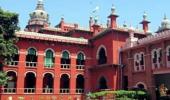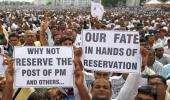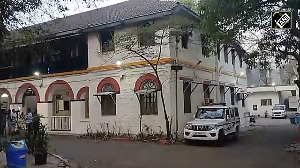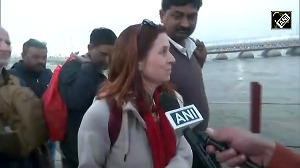The Supreme Court on Wednesday refused to refer to a larger bench a batch of appeals against a Madras high court order which quashed the 10.5 per cent reservation provided to Vanniyars, a Most Backward Community in Tamil Nadu, in government jobs and admission to educational institutions.

A bench comprising Justices L Nageswara Rao and B R Gavai said it has perused the judgments submitted and was of the view that the issue does not need consideration by a larger bench.
"We are not inclined to the argument of referring the matter to a larger bench, you can start your arguments," the bench said.
Senior advocate Abhishek Manu Singhvi, appearing for Tamil Nadu, had on Tuesday submitted that the case involved constitutional issues and would require consideration by a larger bench.
At the outset, senior advocate Rakesh Dwivedi, also appearing for Tamil Nadu, submitted that firstly 102nd Amendment provides that it is the President alone who can include or exclude a caste in the OBC list, ie, the power of identification of the classes and castes as SEBCs is exclusively with the President.
"However, the power to make reservations, quantum and the kinds of reservation was held to be the prerogative of the state. The present case is not of identification of SEBC or their inclusion or exclusion. The Vanniyakula Kshatriya community has been in the OBC list since its inception," he said.
"The impugned Act only prescribes a specific quota of 10.5 per cent within 20 per cent reserved for MBCs. Therefore 102nd Amendment does not in any way whittle down the power of the State to prescribe a specific quota / internal reservation and has no bearing on the present case which is not a case of identification of a class as SEBC. However, now by virtue of the 105th Amendment the power of the State to identify OBCs has also been restored," he said.
Dwivedi argued that the high court had wrongly held that there was no quantifiable data before the State to enable it to prescribe a separate quota of 10.5 per cent.
"It is submitted that the requirements prescribed in M.Nagraj of quantifiable data cannot be mechanically applied in the present case for reasons more than one," he said.
Singhvi also advanced his submissions and submitted that the legislative intent of the 102nd amendment is to clarify that the State and Union Territories may continue to have their separate list.
The 102nd Constitution Amendment Act of 2018 inserted Articles 338B, which deals with the structure, duties, and powers of the NCBC, and 342A which deals with the power of the President to notify a particular caste as SEBC and power of Parliament to change the list.
The hearing in the matter remained inconclusive and will continue on February 22.
The top court had earlier agreed to examine the pleas and said admissions or appointments already made under the said quota will not be disturbed.
The apex court had further directed that no fresh appointments to state government services or admissions to educational institutions should be made.
The top court was hearing a batch of petitions filed by the state of Tamil Nadu, Pattali Makkal Katchi, and others challenging the November 1, 2021, judgment of the high court quashing the reservation provided to Vanniyars, saying it was unconstitutional.
The Tamil Nadu assembly had in February passed the then ruling AIADMK-piloted bill providing internal reservation of 10.5 per cent for Vanniyars, with the incumbent DMK government issuing an order in July this year for its implementation.
It had split the aggregate 20 per cent reservation for MBCs and denotified communities into three separate categories by regrouping castes and provided a ten per cent plus sub-quota for Vanniyars, formerly known as Vanniakula Kshatriyas.
"Is the state government empowered to do the internal reservation? The Constitution has given enough explanation. The legislation providing for internal reservation is cancelled," the high court had said.
The high court had said the state government cannot come out with such legislation. This had been explained in the Constitution.











 © 2025
© 2025